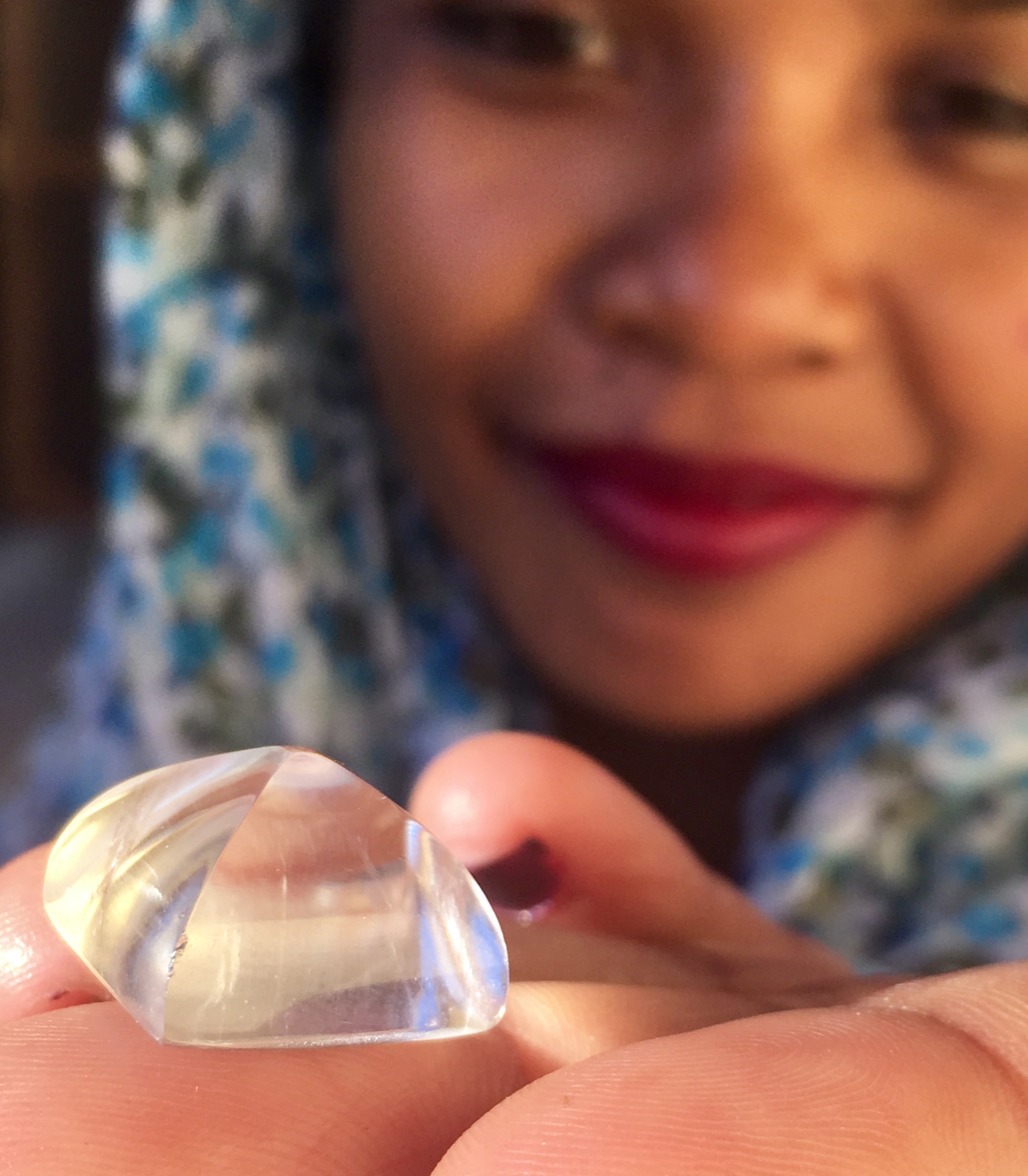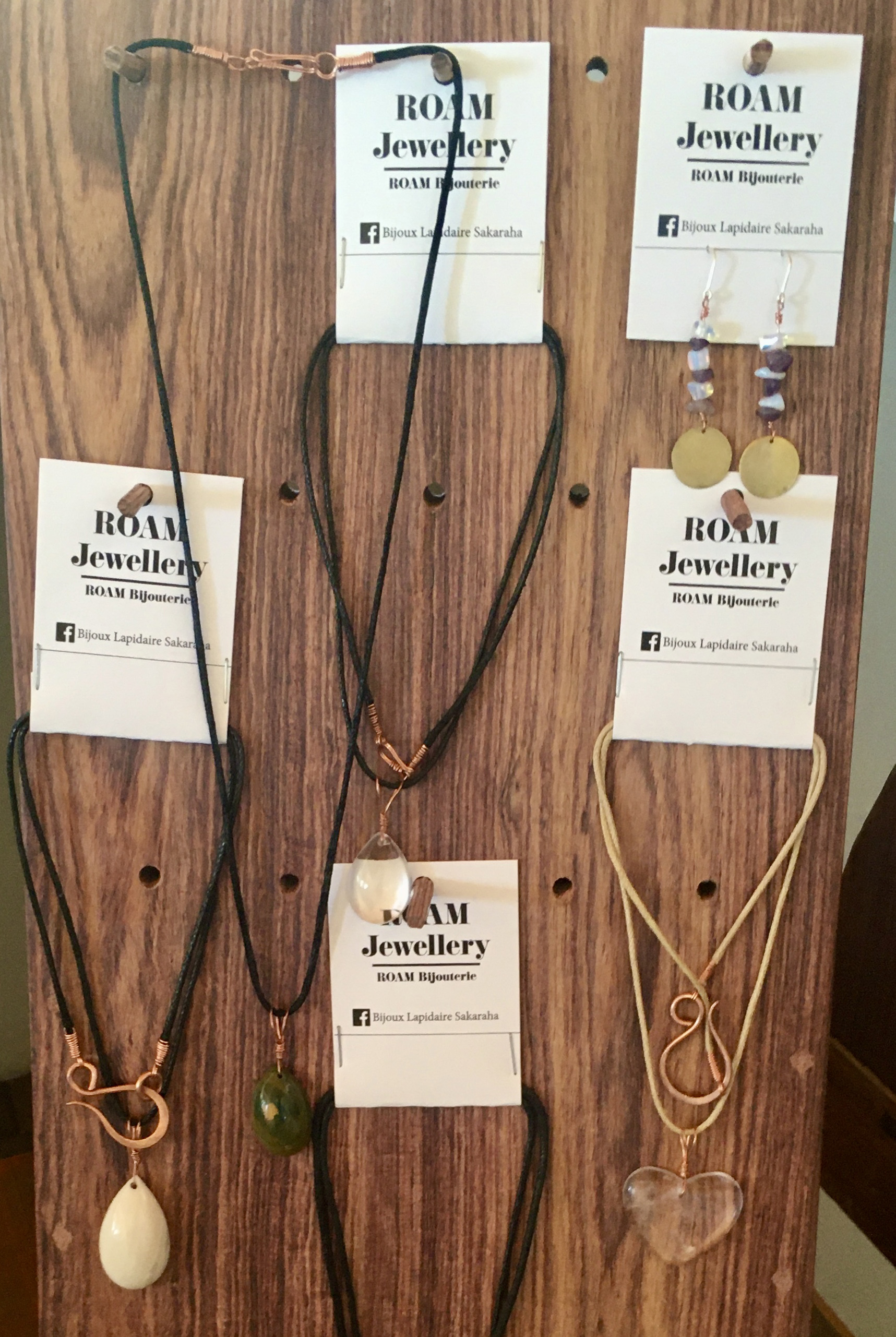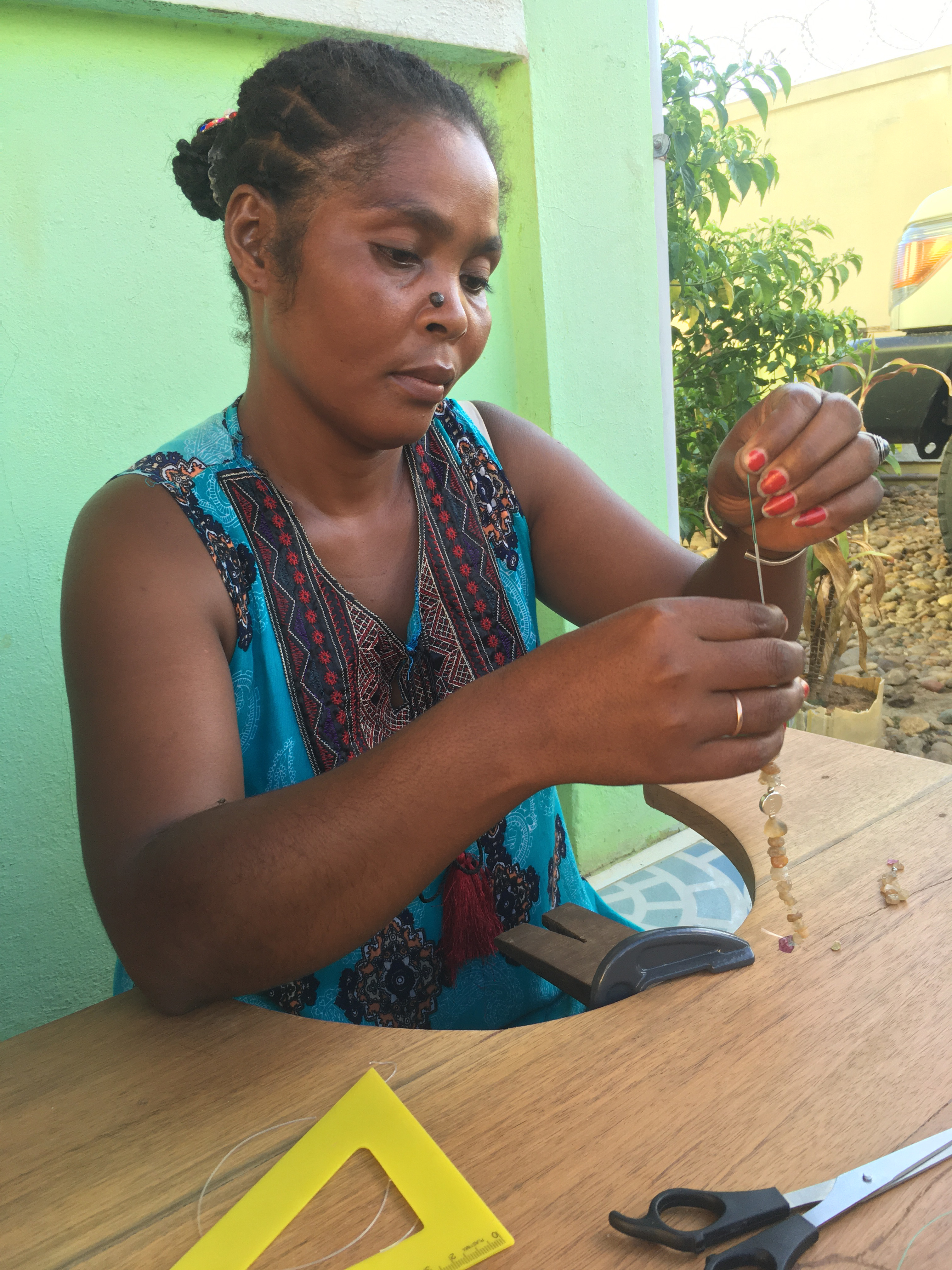
University of Queensland training manager Lynda Lawson is working to enable women involved in sapphire mining in south-west Madagascar change their lives.
Combining her PhD studies and training role in UQ’s Centre for Social Responsibility in Mining, Lynda has developed programs and accessed tools to help the women learn field gemmology, lapidary and jewellery making skills to secure a sustainable income.
Lynda first met the women sapphire miners in 2013 and changed her PhD topic to investigate their pathways, opportunities and challenges.
In February, she visited Madagascar once again and was joined by UQ alumni - gemmologist Charles Lawson and jeweller Michelle Stemm.

“Charles has trained the women in the basics of gemmology over the past couple of years and on this trip he taught a new system of gemstone tracing called Provenance Proof, financed by Gubelin – one of the most prestigious gem and jewellery houses in world,” Lynda said.
“Michelle first heard about our work at a lecture I gave at Griffith College of Art and was very keen to get involved and share her skills as a jewellery designer.”
The aim of the trip was to help the women take their fledgling business to the next stage.
“We were able to set up a meeting for them with the manager of Isalo Rock Lodge – one of Madagascar’s luxury resorts - located nearby.
“We worked with the women on refining and creating really beautiful pieces of jewellery and also enlisted the help of the local furniture maker to build stands to display the jewellery.
“At the meeting the manager bought all of their jewellery and ordered 50 polished heart shaped stones for the resort to give as gifts to honeymooners.
“This kind of connection opens up a whole new market for the women, and now that the relationship is there, I hope they will be more confident moving forward,” Lynda said.
Poverty is a major issue for these women and in some remote areas, the moletry is still practised, a custom that requires a very young girl to be married to an older man in return for money for her parents.
“We are meeting some of these women 20 years down the track and many have been very damaged by their experiences, it’s incredible to see how they are turning their lives around.

"When we talk about empowerment, we tend to think of financial security, and of course we hope the women can generate a sustainable income, but personal empowerment is equally important."
 “To watch the women creating beautiful pieces from local stones, and how they instinctively help each other and organise themselves is very moving,” Lynda said.
“To watch the women creating beautiful pieces from local stones, and how they instinctively help each other and organise themselves is very moving,” Lynda said.
Michelle Stemm agreed and said she was very impressed by the women’s eagerness to learn.
“It was a pleasure to work with these women - they lift each other up, one succeeds and they all succeed,” Michelle said.
“They each finished a project every day - on day one, they all left wearing earrings they had made from scratch - by the end of the week they were confidently using the techniques they had learned and creating their own designs.
“The value of this project extends beyond the practical learning of skills in gem cutting, gem identification, computer literacy and jewellery making.
“The real value is in the growing social capital between these women who come from different mining villages.
“By sharing their stories, knowledge and trust they are creating a safe place to develop personal strength and self-worth as a valued part of this group,” she said.
To date over 200 community members have learned field gemmology, gemstone cutting and polishing, health and safety for gem cutters, jewellery making and IT skills for block chain.
Funding has been provided by the German development agency Deutsche Gesellschaft für Internationale Zusammenarbeit GmbH (GIZ), the Australian Government, and Tiffany and Co Foundation via the Gemstones and Sustainable Development Knowledge Hub, a collaboration between The University of Queensland, University of Delaware and Lausanne University.
Find out more about Lynda’s work
Media: Gillian Ievers 0438 121757, g.ievers@uq.edu.au
